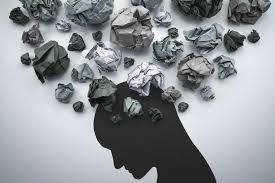
Anxiety is a common mental health condition that affects millions of people worldwide. Among the various forms of anxiety disorders, Generalized Anxiety Disorder (GAD) stands out due to its pervasive and persistent nature. For those living with GAD, anxiety medication often becomes a crucial part of their daily routine. However, while these medications can significantly alleviate symptoms, they also come with their own set of hidden struggles and challenges. This article delves into the complexities of living with generalized anxiety medication, shedding light on both the benefits and the hurdles faced by individuals on this journey.
Understanding Generalized Anxiety Disorder
What is Generalized Anxiety Disorder?
Generalized Anxiety Disorder is characterized by excessive, uncontrollable worry about various aspects of daily life. This worry is often disproportionate to the actual circumstances and can persist for six months or longer. Symptoms of GAD include restlessness, fatigue, difficulty concentrating, irritability, muscle tension, and sleep disturbances. The condition can severely impact one’s quality of life, making it difficult to carry out everyday activities.
The Role of Anxiety Medication
How Does Anxiety Medication Work?
Anxiety medications, including selective serotonin reuptake inhibitors (SSRIs), serotonin-norepinephrine reuptake inhibitors (SNRIs), benzodiazepines, and beta-blockers, are commonly prescribed to manage GAD symptoms. These medications work by altering the balance of neurotransmitters in the brain, which helps reduce the intensity of anxiety and improve mood.
Benefits of Anxiety Medication
Symptom Relief and Improved Functioning
For many individuals with GAD, anxiety medication provides much-needed relief from persistent symptoms. Managing anxiety can lead to improved functioning in daily life, better relationships, and an overall enhanced sense of well-being. For some, medication is a lifeline that enables them to regain control over their lives.
Complementary to Therapy
Anxiety medication often works best when combined with psychotherapy, such as cognitive-behavioral therapy (CBT). This dual approach can help individuals develop coping strategies while the medication alleviates the physical and emotional symptoms of anxiety. Together, therapy and medication can create a comprehensive treatment plan that addresses both the underlying causes and the manifestations of GAD.
The Hidden Struggles of Anxiety Medication
Side Effects and Physical Discomfort
One of the most significant challenges of living with generalized anxiety medication is managing the side effects. Common side effects of anxiety medications can include nausea, dizziness, weight gain, sexual dysfunction, and sleep disturbances. These physical discomforts can be distressing and may sometimes deter individuals from adhering to their prescribed regimen.
Dependency and Withdrawal
Benzodiazepines, in particular, carry a risk of dependency. Over time, individuals may require higher doses to achieve the same effect, leading to a cycle of dependence. Discontinuing benzodiazepines can also result in withdrawal symptoms, such as rebound anxiety, insomnia, and agitation. This potential for dependency can add another layer of stress for those already struggling with GAD.
Stigma and Misunderstanding
Despite the increasing awareness of mental health issues, stigma around anxiety medication persists. Individuals may face judgment or misunderstanding from others who perceive medication use as a sign of weakness or failure. This stigma can lead to feelings of shame and isolation, making it more challenging for individuals to seek and adhere to treatment.
Managing the Challenges
Open Communication with Healthcare Providers
Effective management of anxiety medication requires open and ongoing communication with healthcare providers. Patients should feel comfortable discussing side effects, concerns about dependency, and any other issues they encounter. Adjusting dosages or switching medications can often mitigate adverse effects and improve treatment outcomes.
Support Systems
Building a solid support system is crucial for individuals on anxiety medication. Support from family, friends, and support groups can provide emotional validation and practical advice. Engaging with others who understand the challenges of GAD can reduce feelings of isolation and encourage adherence to treatment plans.
Holistic Approaches and Self-Care
Incorporating holistic approaches and self-care practices can complement the effects of anxiety medication. Regular exercise, mindfulness meditation, a balanced diet, and adequate sleep are all essential components of a healthy lifestyle that can enhance medication efficacy and improve overall mental health.
Conclusion
Living with generalized anxiety medication involves navigating a complex landscape of benefits and challenges. While these medications can significantly reduce the symptoms of GAD and improve quality of life, they also bring potential side effects, risks of dependency, and societal stigma. By fostering open communication with healthcare providers, building robust support systems, and integrating holistic self-care practices, individuals can better manage these hidden struggles and lead fulfilling lives. Understanding and addressing the multifaceted nature of anxiety medication is critical to supporting those who rely on it to manage their mental health.








